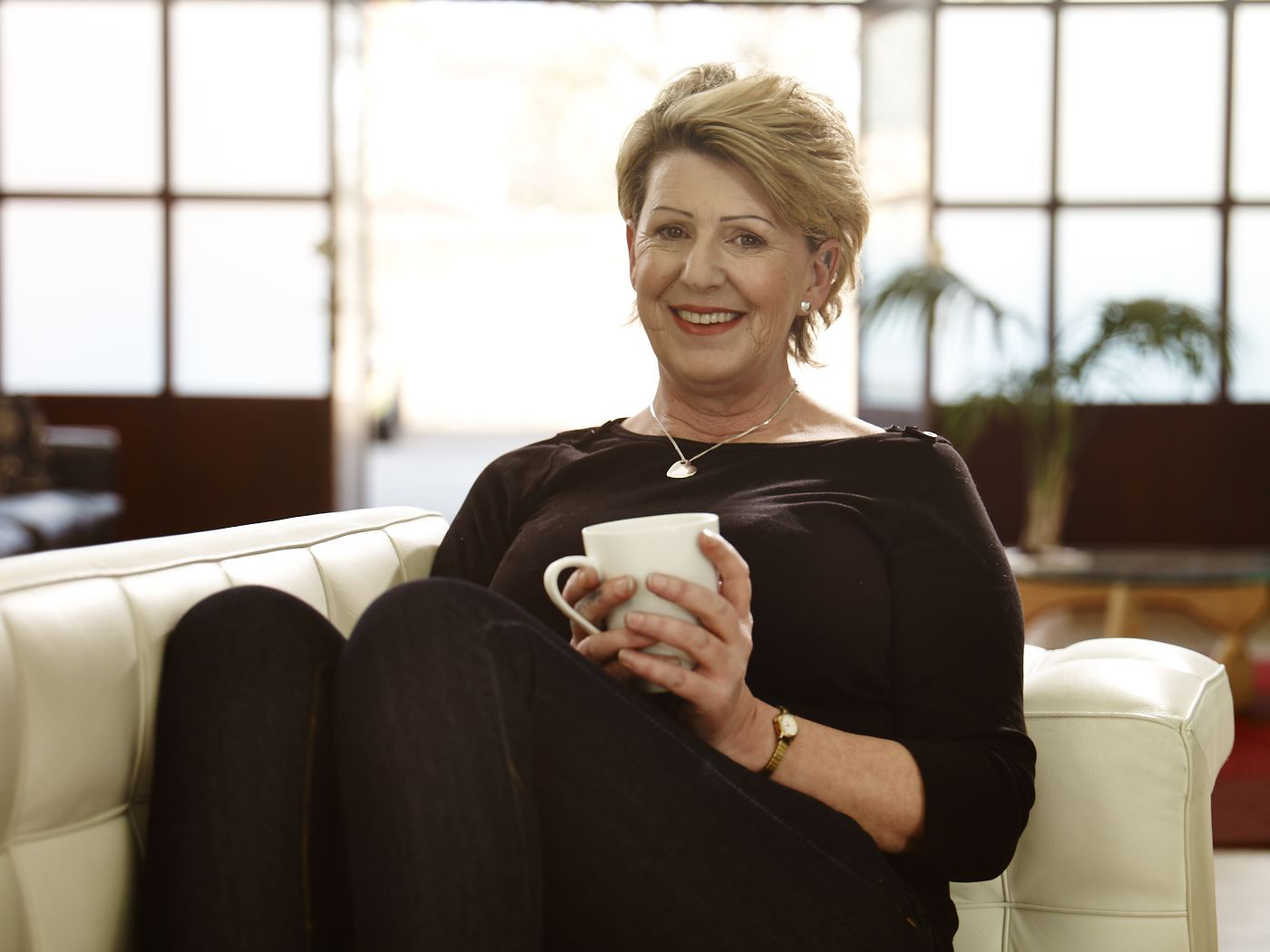The Complex Psychology Of Scars
Inches, depth and discolouration are only part of the picture, but emotions are the true measure of scars. Abi Jackson reflects
Scars are sometimes portrayed as interesting, war wounds to be worn with pride, or an easy way to bring a movie character’s back-story to life.
For people living with scars, though, the reality can be very different. Sometimes they’re a source of deep anxiety or shame. This can majorly affect a person’s life, and it’s far more complex than merely being a superficial concern.
Niki, 49, has two notable scars. The first is the result of a violent mugging almost a decade ago by a group of girls, in which Niki’s cheek was slashed.
The second is a set of scars following a more recent double mastectomy and reconstructive surgery. Both very significant experiences in Niki’s life, but with their own unique emotions attached.
“In hospital after I was mugged, the nurses told me not to look in the mirror,” she recalls. “But I needed to go to the bathroom, and of course, I looked in the mirror. I probably screamed the hospital down; I could see my tongue and teeth through my face.
“I thought that was it, it would never get any better. After the surgery though, it was much, much better, but it was still very hard to come to terms with.”
Niki was at an age where she already naturally found herself feeling a little insecure about how her looks were changing with age. And being on her face, her scar was inescapable. “I couldn’t brush my teeth, wash my face, anything without seeing it,” she says. “It’s easier now than it used to be, but before, every time I got up in the morning and saw it, it would be a bad start to the day.”
Niki’s distress about her scar was far deeper than being unhappy about her appearance.
The mark was a daily reminder of the trauma she’d experienced, something which she says changed her life. The attack had happened at night when she was walking home alone and, as a result, she developed post-traumatic stress disorder (PTSD), suffered panic attacks and flashbacks, and still struggles with going out, only leaving the house alone if she’s with her trusty big dog, Bear.
This emotion was bubbling under the surface constantly, and – in a sense – seeing her scar in the mirror, or being aware of other people noticing it, meant reliving the trauma over and over again.
Sometimes, Niki says, she would have flashbacks and find herself instinctively reaching for her face, “to feel if it really did happen”. Other times it would be a far more subconscious reaction, barely registered but still perpetuating that niggling sense of vulnerability.
This may help explain why coming to terms with scars can sometimes be challenging.
Psychologist Dr Andrew Thompson, at the University of Sheffield’s Clinical Psychology Unit, notes that this is an interesting area – the notion of physical scars resulting from trauma being an ongoing trigger for associated PTSD – but one for which there has been relatively little research so far.
“But common sense and clinical experience both suggest that that can be the case,” he says. “An appearance change, and symptoms of PTSD-type anxiety, can ratchet one another up, but there’s been relatively little research to look at how that actually operates.”
He references a case of a person who lost a digit in an industrial accident, “and the sensation of having lost the finger and also noticing it [being gone], also acted as a trigger for remembering the accident itself”.
Scars, in this sense, are far more than the sum of their parts. As well as their physical characteristics, they are what they represent emotionally, psychologically and socially.
Similarly, the impact a scar has on a person can’t be measured in inches, or other such physical factors, alone.
“There’s a whole load of research looking at all different sorts of conditions, and when you crunch it all together, what might surprise some people, is that there isn’t a link between the physical severity – the objective severity if you like – and psychological distress,” says Thompson, whose research over the past 10 years has focused on the psychosocial factors involved in long-term health conditions and injuries that effect appearance.
“So some people who have a minor degree of scarring or mark may experience significant distress, and people with a maybe more obvious condition might not.”
There has been some research to look at factors that may come into play, and these include things like how much importance a person might attribute to physical appearance, and their approach to coping strategies.
Concealing scars may sometimes be a comfort and confidence-booster, while it can also lead to additional problems – for instance, as Thompson notes, somebody who hides their face under a cap or hoodie may be perceived as being standoffish or antisocial, and encounter difficulties associated with this.
Social factors, notably dealing with other people’s reactions – or sometimes just the fear of other people’s reactions – is also important.
Niki admits she was very aware of people staring at her facial scar, which contributes to her anxiety. She says strangers didn’t ever ask how she’d obtained the scar “though it would have been easier if they did”, and she once overheard a woman telling her husband, “She looks like she’s been in a few pub brawls”.
Her mastectomy scars also have deep emotional connections, as Niki’s family is affected by the BRCA2 cancer gene. She appreciates how lucky she is that her surgery went well, and she is healthy and cancer-free, but acknowledges that even “survivors” can face a rocky road of adjustment.
A key difference, she says, between her two scars, is the element of control. “The breast surgery was selective in a way,” she says. “I could have just said no, take the lumps away, but it was a decision I made, I was involved with it, I knew about it, so I was coming to terms with it before it had even happened. With the facial scar, it was a case of blink – and I’m disfigured, no time to process. I didn’t have a say in it, it wasn’t even an accident or any negligence on my part, there was a lot to deal with in coming to terms with that.”
Earlier this year, Niki encountered another turning point in the journey, when she responded to an ad on Bio-Oil’s Facebook page, asking for people who’ve used the product (a skincare oil to reduce the appearance of scars and stretchmarks) to submit their ‘scar stories’. As a result, she was then asked to take part in a campaign, which involved taking part in a photo shoot and talking about her experiences in a video to be shared online.
The experience was a huge boost, and Niki feels empowered by the fact she’s helping others by speaking up too. “That means an awful lot to me,” she says. “It was very bizarre watching [the video] back, it was like seeing myself in a different light.
“You think, ‘Jesus Christ – I am what people say I am – I am strong!'”
:: Watch Niki’s video here www.youtube.com/watch?v=
:: To share your story, visit www.facebook.com/biooiluk?ref=
ARE YOU AFFECTED BY SCARS?
If scars are causing you significant distress, speaking to your GP can be a helpful first step. Your doctor may be able to point you in the direction of support services in your area, or refer you to local counselling or psychiatric services.
Charities such as Changing Faces can also provide advice and support. Visit www.changingfaces.org.uk or contact their helpline on 0300 012 0275
Latest posts by Sally - Silversurfer's Editor (see all)
- Will you be sending Christmas cards this year? - November 23, 2024
- Do you like the new Jaguar rebrand? - November 21, 2024
- Christmas Decorations Masterclass: Make your own Festive Wreath, Garland and Flower Centrepieces - November 21, 2024
- Finding warmth in cold days - November 21, 2024
- Fall in love with Norfolk Hideaways - November 20, 2024





















